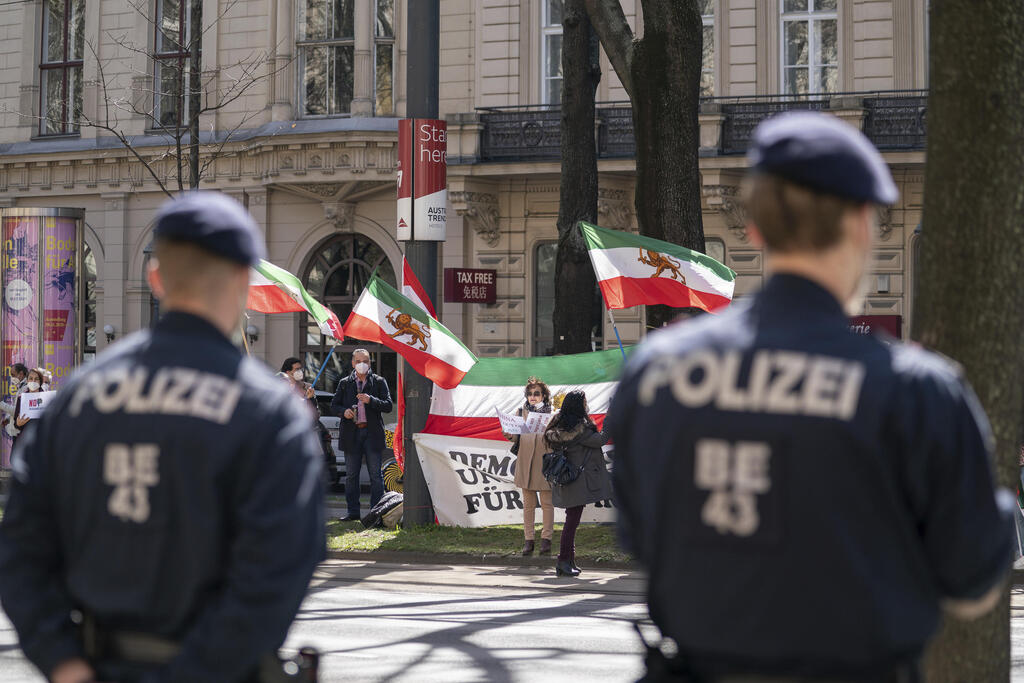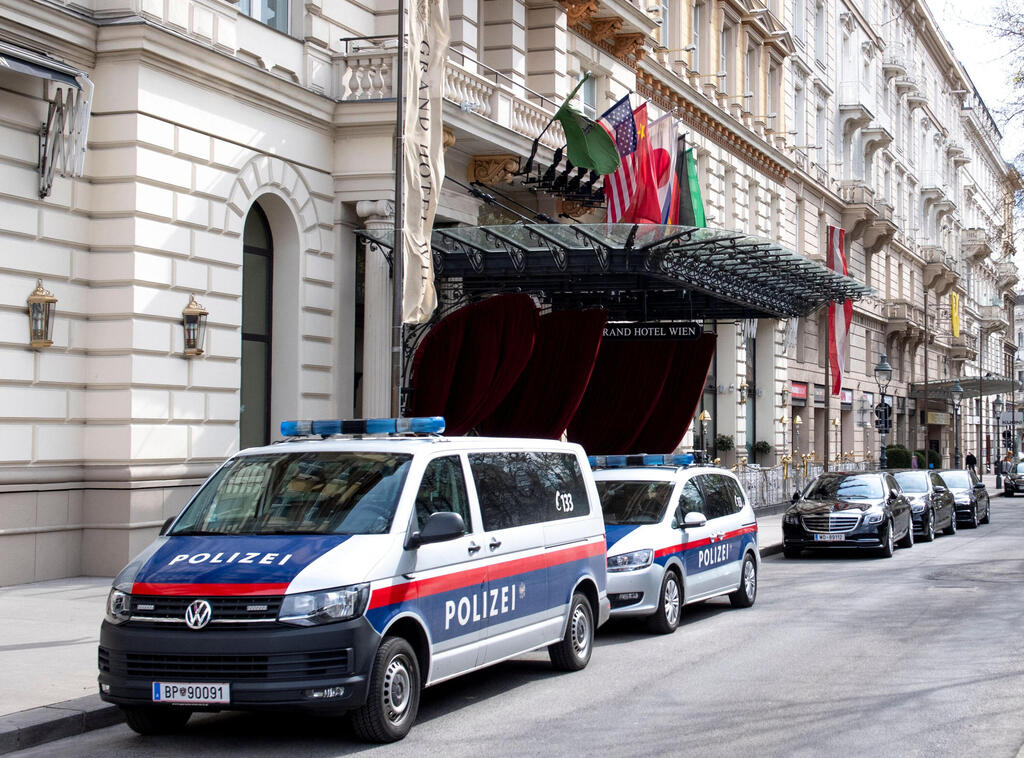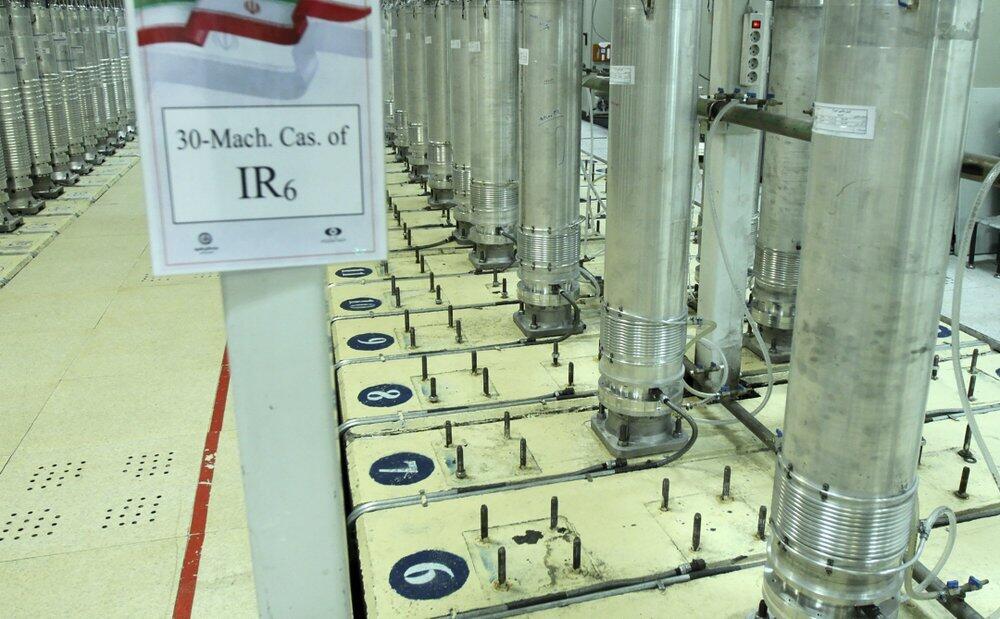Iran and global powers were resuming talks in Vienna on Thursday to rescue the 2015 nuclear deal in an effort potentially complicated by Tehran's decision to ramp up uranium enrichment and what it called Israeli sabotage at a key nuclear site.
Casting a shadow over the Vienna talks, Tehran on Tuesday announced its decision to enrich uranium at 60% purity, a big step closer to the 90% that is weapons-grade material, in response to an explosion at its key Natanz facility on Sunday.
3 View gallery


Protesters carrying the flag of an Iranian opposition group stand opposite police officers near the Vienna hotel as the nuclear talks with Iran were taking place last month
(Photo: AP)
The United States and the European parties to the deal warned that Tehran's enrichment move was contrary to efforts to revive the accord abandoned by then-U.S. president Donald Trump three years ago.
The United States called the move "provocative," while European nations and Saudi Arabia expressed concern.
Iranian President Hassan Rouhani reiterated that the Islamic Republic had no intention of making a nuclear bomb and called on world powers to honor the deal.
"Don't worry about Iran. We have always remained committed to our obligations," Rouhani said in a televised cabinet meeting Thursday.
"Even today, if we wish, we can enrich uranium at 90% purity. But we are not seeking a nuclear bomb ... If others return to full compliance with the deal ... we will stop 60% and 20% enrichment."
He said Tehran would then return to compliance with the 3.67% cap set by the deal on Iran's uranium enrichment level.
The 2015 deal was designed to make it harder for Iran to develop an atomic bomb in return for lifting sanctions.
3 View gallery


A heavy security presence outside the Vienna hotel where the talks on the 2015 nuclear pact were taking place
(Photo: AFP)
Israel, which Iran refuses to recognize, opposes the deal, an accord that Tehran and U.S. President Joe Biden are trying to revive after Trump abandoned it in 2018 and reinstated harsh economic sanctions against Iran.
Tehran has repeatedly said that all sanctions must be rescinded first, warning that it may stop negotiations if the measures are not lifted. Washington wants Iran to reverse the steps away from compliance with the deal that it has taken in retaliation for Trump's sanctions.
"It is going to be a very hard meeting. Our position is clear. As our leader said yesterday, we cannot hold negotiations for ever," said a senior Iranian official involved in the talks.
"All these illegal and unjust sanctions should be removed ... We don't negotiate our rights."
3 View gallery


Centrifuge machines at the Natanz uranium enrichment facility in central Iran
(Photo: AP)
Iran's Supreme Leader Ayatollah Ali Khamenei, who has the last say on the country's state matters, said on Wednesday the United States was trying to impose its terms for rescuing the deal and European powers were doing Washington's bidding.
Israel has not formally commented on Sunday's Natanz incident, but Israeli and American media reports said that Jerusalem was indeed behind the attack that caused all the power at the enrichment site to blow.
Tehran's refusal to hold direct talks with its old adversary the United States forced European intermediaries to shuttle between separate hotels in Vienna last week when Iran and the other signatories held what they described as "constructive" talks to salvage the pact.
The deal's remaining parties - Iran, Britain, China, France, Germany and Russia - agreed last week to form two expert-level groups whose job is to marry lists of sanctions that the United States could lift with nuclear obligations Iran should meet.

